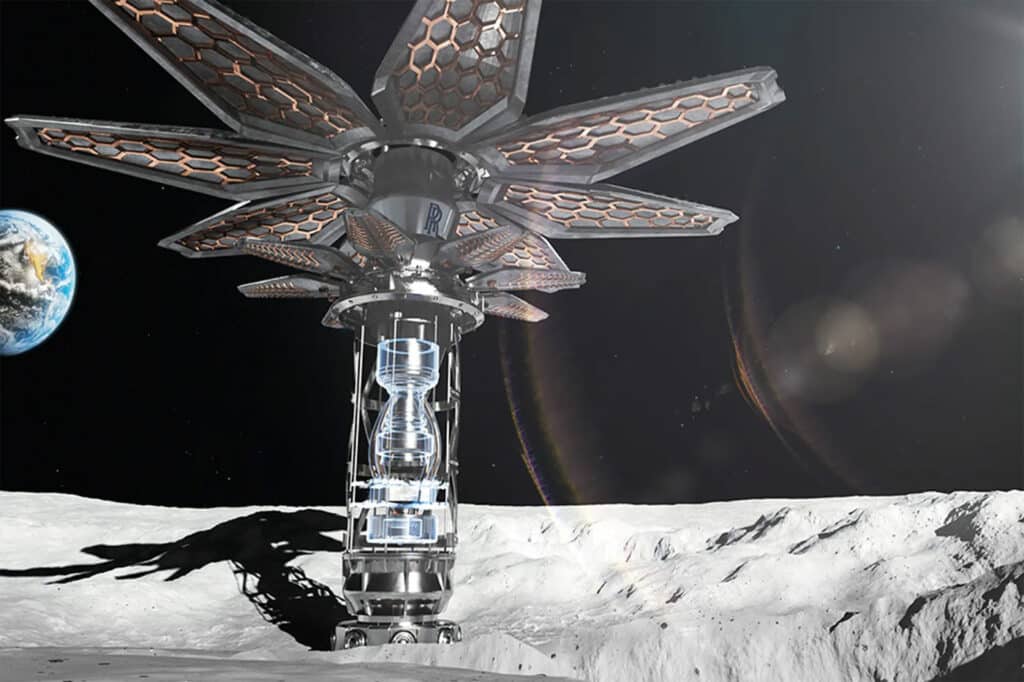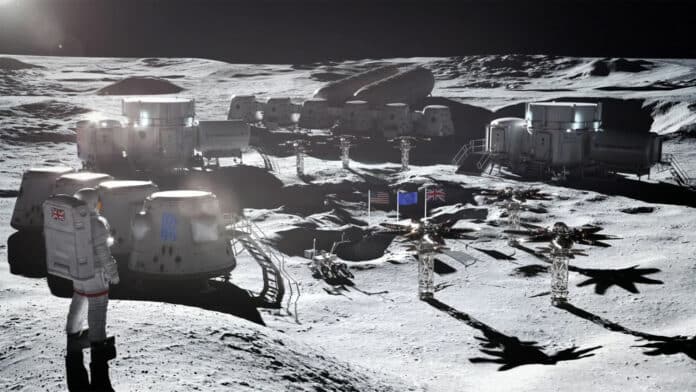The UK Space Agency announced that it would back research by Rolls-Royce into how nuclear power could be used to support a future Moon base for astronauts.
Rolls-Royce engineers are working on the Micro-Reactor program to develop technology that will provide the power needed for humans to live and work on the Moon.
All space missions depend on a power source to support systems for communications, life-support, and science experiments. Currently, a majority of space travel is powered by solar energy, but the Moon’s rotation results in a two-week day followed by a fortnight of darkness or night-time.
Nuclear power has the potential to dramatically increase the duration of future Lunar missions and their scientific value. A nuclear micro-reactor is relatively small and lightweight compared to other power systems. It could enable continuous power regardless of location, available sunlight, and other environmental conditions.
The UK Space Agency will now provide £2.9 million of new funding for the project, which would deliver an initial demonstration of a UK lunar module nuclear reactor. The new funding follows a £249,000 study funded by the UK Space Agency in 2022. with the new funds, the company hopes to have a demonstration modular nuclear reactor ready to send to the Moon by 2029.

Rolls-Royce’s continuing research will focus on three key factors of the Micro-Reactor – the fuel used to generate heat, the method of heat transfer, and the technology to convert that heat into electricity.
In addition to powering a Moon base, the company envisions a wide range of potential applications for its Micro-Reactor technology. It could support commercial and defense use cases in addition to those in space.
“This funding will bring us further down the road in making the Micro-Reactor a reality, with the technology bringing immense benefits for both space and Earth. The technology will deliver the capability to support commercial and defense use cases alongside providing a solution to decarbonize industry and provide clean, safe, and reliable energy,” said Abi Clayton, Director of Future Programmes for Rolls-Royce.
“Developing space nuclear power offers a unique chance to support innovative technologies and grow our nuclear, science, and space engineering skills base,” said Dr. Paul Bate, Chief Executive of the UK Space Agency. “This innovative research by Rolls-Royce could lay the groundwork for powering continuous human presence on the Moon while enhancing the wider UK space sector, creating jobs, and generating further investment.”
Rolls-Royce is set to work with a range of organizations on the project, including the University of Oxford, the University of Bangor, the University of Brighton, the University of Sheffield’s Advanced Manufacturing Research Centre (AMRC), and Nuclear AMRC.
